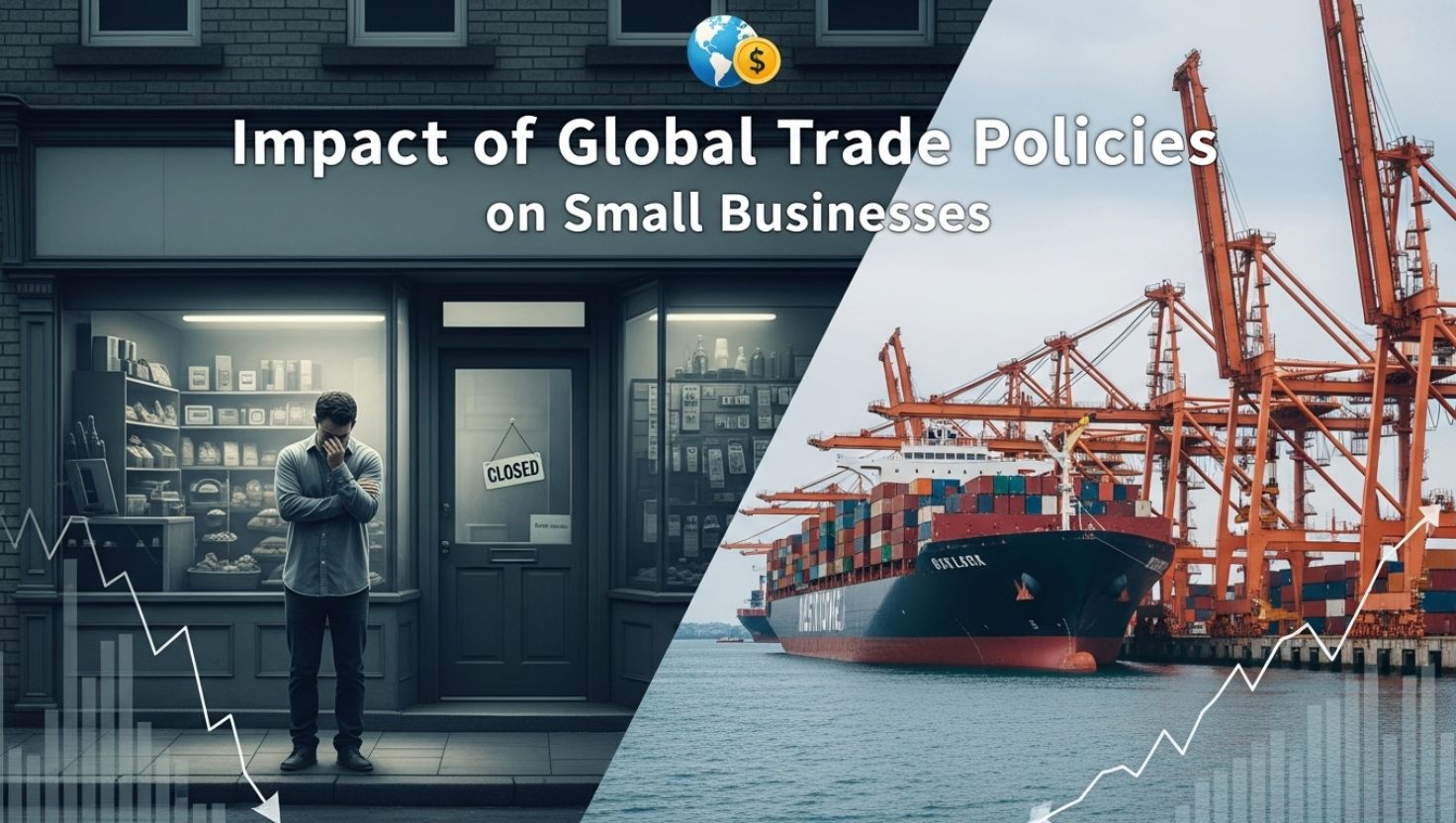Global trade policies, including tariffs, trade agreements, export controls, and sanctions, significantly shape the operating environment for small businesses. These policies create both opportunities and challenges, impacting market access, costs, supply chains, and competitiveness. Below is an analysis of their effects, drawing on various perspectives.
Opportunities for Small Businesses
- Market Expansion:
- Access to New Markets: Trade agreements, such as bilateral or multilateral free trade agreements (FTAs), reduce tariffs and barriers, enabling small businesses to enter international markets. For instance, a small craft brewery can benefit from tariff reductions, allowing competitive pricing in foreign markets.
- Digital Platforms: Advances in digital trade and e-commerce platforms allow small businesses to reach global customers with lower entry costs. In Senegal, over 1,600 MSMEs, 40% women-led, joined a national e-commerce platform to access export markets.
- Emerging Markets: Developing economies offer growth opportunities due to rising demand. Early entry into these markets can provide a first-mover advantage.
- Cost Savings:
- Sourcing Materials: Global trade enables small businesses to source raw materials or components from countries with lower production costs, improving profit margins.
- Export Subsidies: Government subsidies can support small businesses in entering international markets, reducing financial barriers.
- Innovation and Competitiveness:
- Exposure to global markets encourages innovation, as small businesses adopt new technologies and practices to compete. Trade policies promoting open markets drive productivity and technological adoption.
READ MORE: Dar Signs Six Trade MOUs
- Exposure to global markets encourages innovation, as small businesses adopt new technologies and practices to compete. Trade policies promoting open markets drive productivity and technological adoption.
Challenges for Small Businesses
- Increased Costs from Tariffs:
- Higher Import Costs: Tariffs on imported goods, such as steel or electronics, raise production costs for small businesses reliant on these inputs. A National Small Business Association survey noted that 42% of small businesses faced increased costs due to tariffs.
- Tighter Margins: Unlike large corporations, small businesses lack the leverage to absorb tariff-related cost increases, forcing them to raise prices or reduce output, which can harm competitiveness.
- Retaliatory Tariffs: Exporting small businesses face challenges from retaliatory tariffs imposed by trade partners, reducing the competitiveness of their goods abroad. A 2022 study highlighted that retaliatory tariffs affected over $120 billion in U.S. exports, impacting small-scale manufacturers.
- Supply Chain Disruptions:
- Complex Networks: Global trade requires managing intricate supply chains, which can be disrupted by geopolitical tensions, trade wars, or policy shifts. For example, the 2020 trade crisis led to an 8.2% drop in global trade volumes, significantly affecting small businesses.
- Policy Uncertainty: Rapid changes in trade policies, such as tariff hikes or new regulations, create uncertainty, delaying investments in equipment or market expansion.
- Regulatory and Compliance Burdens:
- Complex Regulations: Small businesses often lack the resources to navigate international trade rules, such as export controls or sanctions. Non-compliance can lead to fines or loss of export privileges.
- Documentation and Costs: Compliance with international standards, such as product certifications, involves high costs and complexity, particularly for micro, small, and medium-sized enterprises (MSMEs) in developing countries.
- Financial and Currency Risks:
- Limited Access to Finance: MSMEs face significant barriers to securing trade finance, limiting their ability to integrate into global markets. Initiatives like the WTO’s MSME Group aim to address this through financing mechanisms.
- Currency Volatility: Fluctuations in exchange rates affect profitability, especially for small businesses engaged in cross-border transactions. Hedging tools, like forward contracts, can mitigate risks but require expertise.
- Increased Competition:
- Global Competitors: Small businesses face competition from multinational corporations and international firms with greater resources. To compete, they must focus on niche markets or innovative offerings.
Strategies for Small Businesses to Navigate Global Trade Policies
- Leverage Support Programs:
- Engage with organizations like the WTO’s MSME Group, International Trade Centre (ITC), or U.S. Commercial Service, which provide trade information, training, and financing support. In 2023, ITC supported over 5,000 MSMEs, with 70% reporting improved market access.
- Join trade associations to gain insights and advocacy on trade policies.
- Adopt Digital Tools:
- Utilize platforms like Trade4MSMEs and Global Trade Helpdesk for trade data and guidance. These tools help small businesses understand tariffs and regulations.
- Invest in e-commerce and digital marketing to reach global customers cost-effectively.
- Build Resilience:
- Diversify suppliers to mitigate supply chain risks from trade disruptions or tariffs.
- Develop contingency plans for geopolitical or economic shocks, such as maintaining backup suppliers.
- Stay Informed:
- Monitor trade agreements and policy changes to capitalize on opportunities like tariff reductions or preferential trade terms.
- Conduct market research to understand cultural and regulatory differences in target markets.
Case Studies and Examples
- Positive Impact: In Togo, EIF support boosted soybean exports from $700,000 in 2015 to $60 million in 2023, attracting significant foreign investment for MSMEs.
- Negative Impact: A small U.S. business owner reported $30,000 worth of goods stuck in China, with shipping costs rising to $200,000 due to tariff hikes, threatening revenue and operations.
Conclusion
Global trade policies present a dual-edged sword for small businesses. While they offer opportunities for market expansion, cost savings, and innovation, they also impose challenges like increased costs, supply chain disruptions, and regulatory burdens. Small businesses can thrive by leveraging support programs, adopting digital tools, and building resilient strategies. Policymakers should prioritize inclusive trade policies, such as simplified regulations and enhanced financing, to support MSMEs, which account for 95% of global businesses and 60% of employment.









